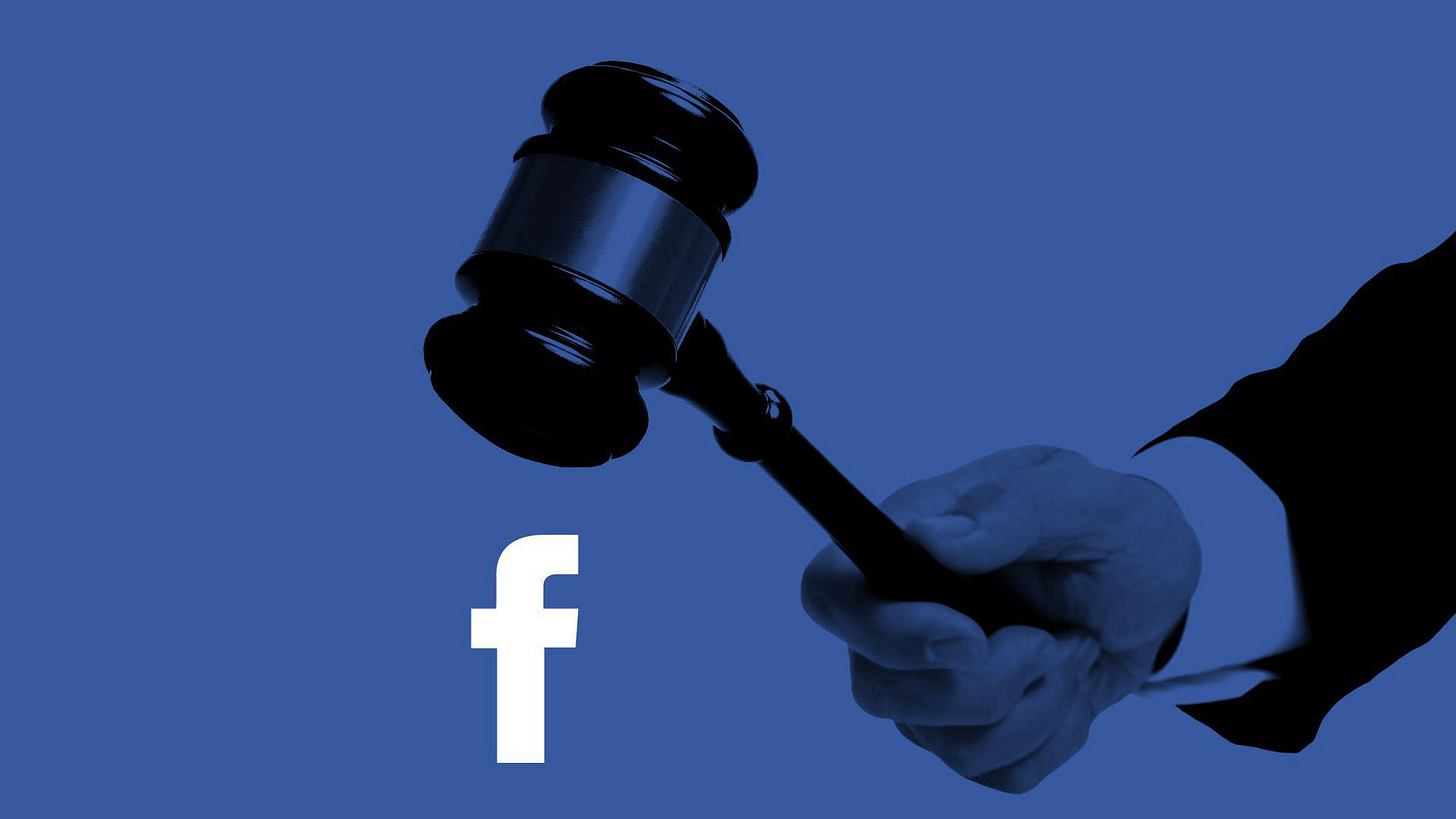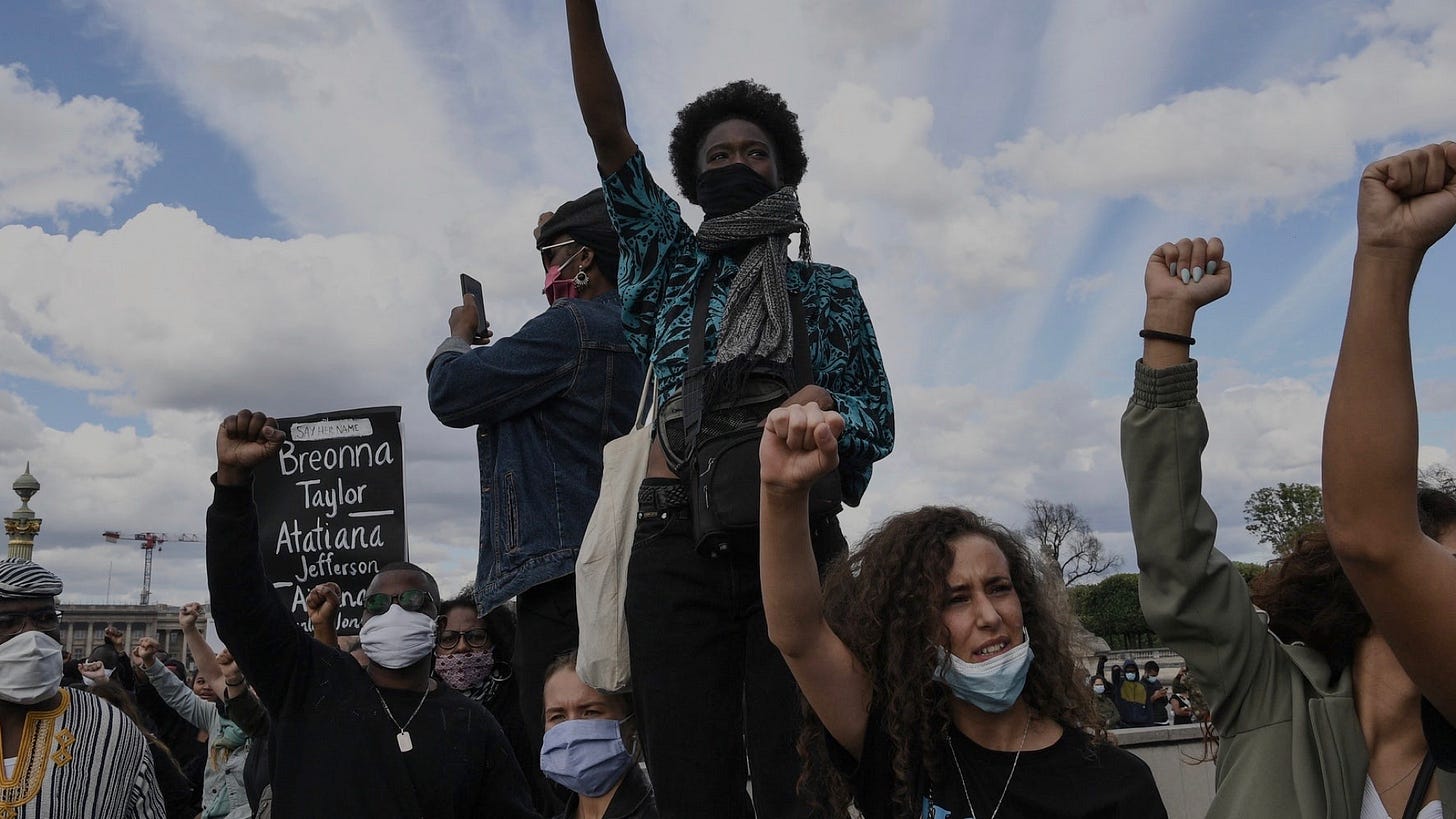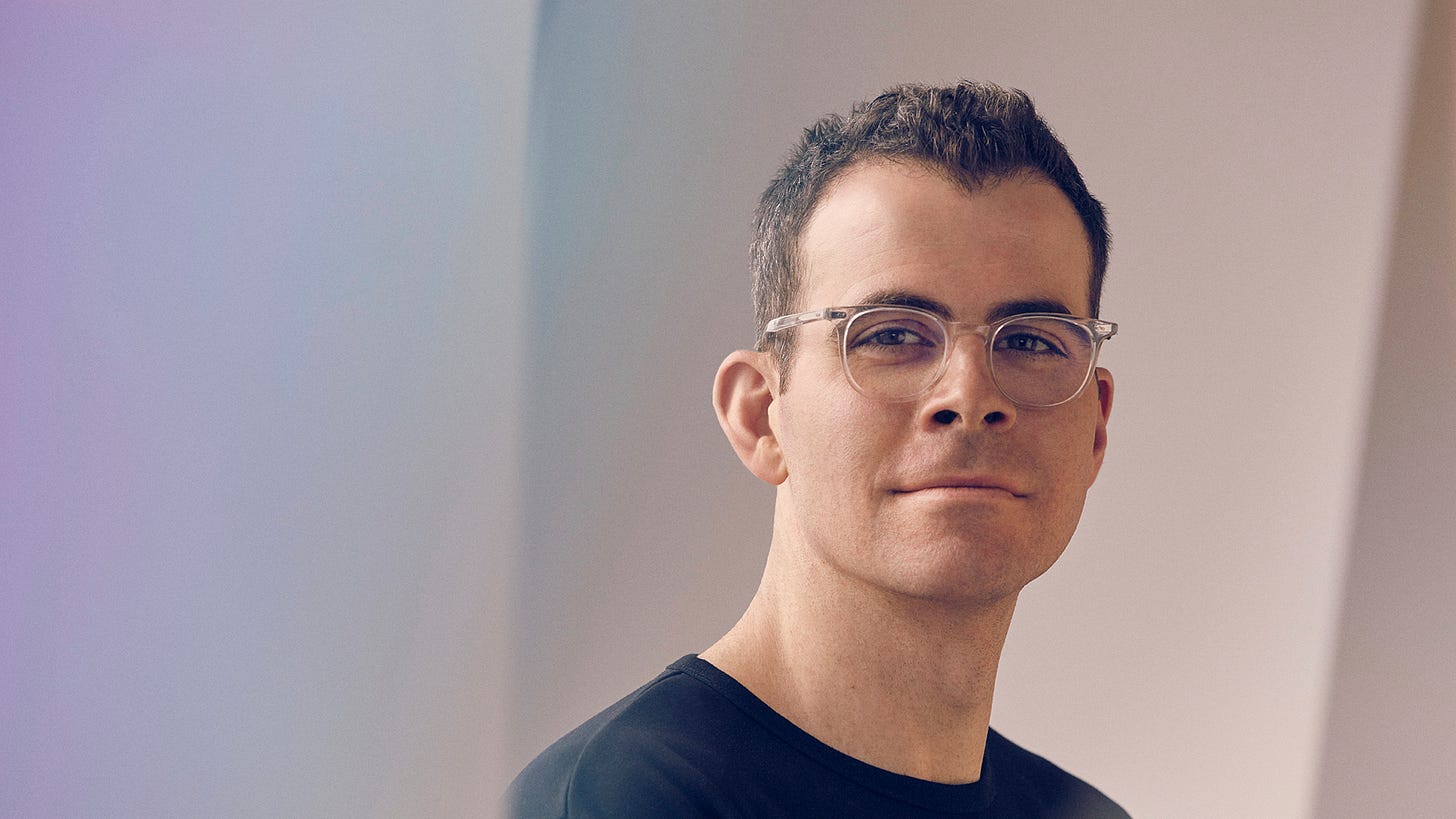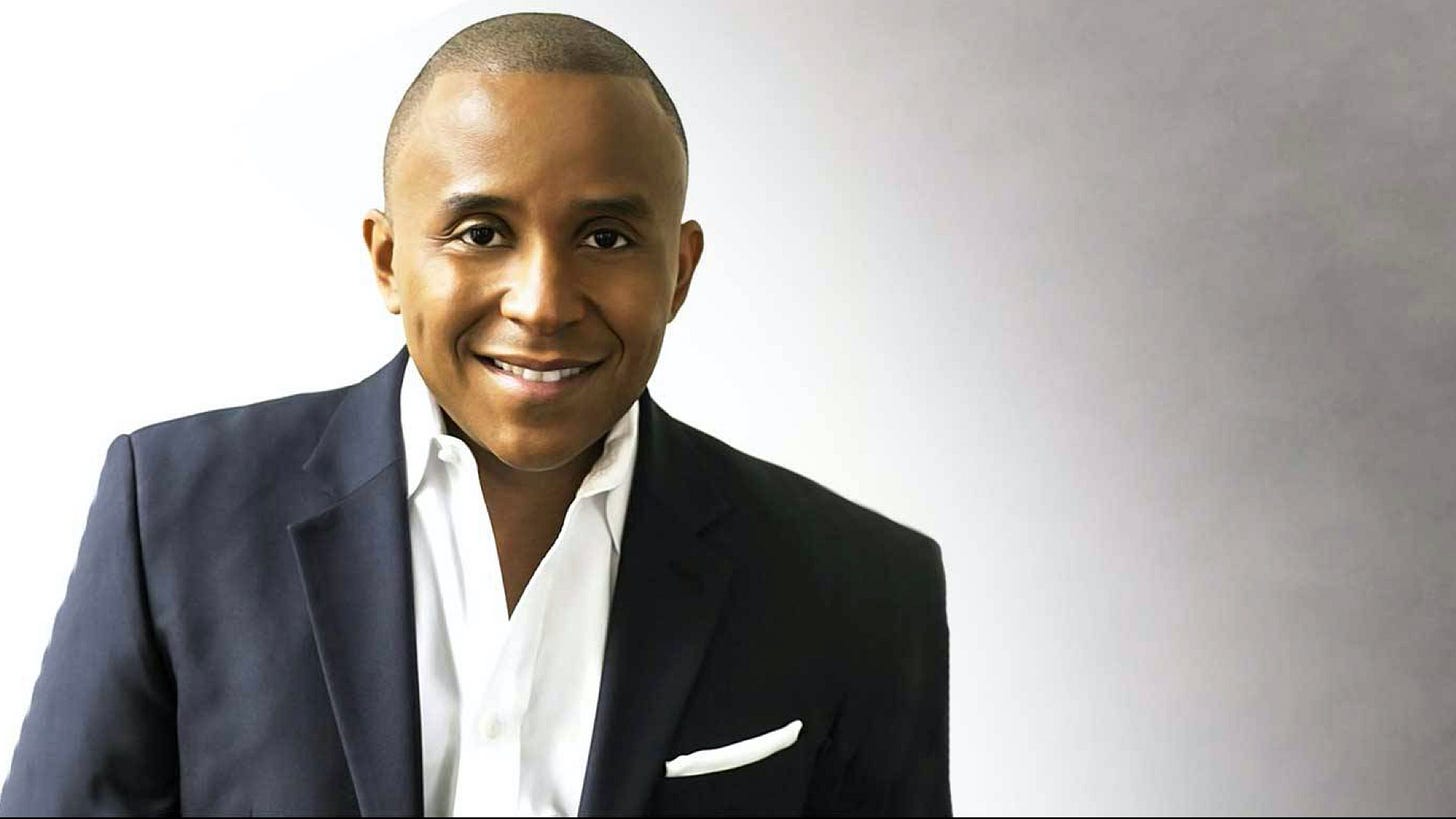How Facebook fights tooth and nail to preserve racial injustice
6:30-min read
Hello from 20 Minutes into the Future. In this edition we’re looking at how Facebook blocks due process for criminal defendants in the courts. All while Zuckerberg purports to care about justice reform.

Illustration by Sarah Grillo and originally published at Axios
Mark Zuckerberg is a hypocrite. On June 1st, he said in a length post on Facebook, “One of the areas Priscilla and I have personally worked on and where racism and racial disparities are most profound is in the criminal justice system.” Yet his company fights over and over again in the courts to prop up racial injustice.
Facebook frequently complies with prosecution requests for search warrants. Last year along it received over 100,000 US government data requests. It granted 88% of them. The majority of which are search warrants against criminal defendants. Facebook even makes it easy for police and prosecutors to submit requests online.
Defense attorneys aren’t provided that same level of access.
“You know what Facebook tells me I have to do to get even the stuff I’m entitled to?” said Jerome Greco, an attorney at the Legal Aid Society in New York City. “I have to get it personally served on them in California. And the only way to do that under current US law is to have a judge in New York sign the subpoena, then have it brought to a judge in California to also sign the subpoena, and then have it served on Facebook at their headquarters.”
“Poor people who are being represented by people like me, who get paid a fraction of Facebook’s salaries or what people make in these private law firms—we don’t get unlimited funds to litigate cases and investigate,” said Bicka Barlow, a San Francisco lawyer who worked on the case that got appealed to the US Supreme Court. “And yet we’re supposed to jump through all of these hoops because they don’t want to be inconvenienced by all these defense subpoenas. That’s my cynical view of it, but I think that’s a big part of it.”
The kicker? In the rare instances when defense subpoenas are issued, the company usually denies them. Which results in a paltry $1,000 contempt of court charge for the company.
Facebook had $70.7 billion dollars in revenue in 2019.
“I was very lucky that I was able to carve out the time and resources as a public defender” to work on Touchstone’s case, Tesch said. “But we’re up against Facebook. What is this to Facebook? They can just do it almost as sport. And at times it almost feels that way. I’m talking about someone’s life, and their freedom, and Facebook is facing a thousand dollar sanction if they just refuse.”
At the heart of this two-tiered system is the Stored Communications Act of 1986. That act, on paper, sounds like a good thing. It prohibits providers of “electronic communications” from sharing users messages and account data. But there are legal exemptions for law enforcement. Those exemptions, however, do not extend to defendants.
This doesn’t have to be the case. In rare instances judges have ruled in favour of defendants pointing to their constitutional rights of due process. In those moments, Facebook could choose to comply with the court order.
But they don’t.
Instead they fight tooth and nail using their considerable legal and financial means to do so. In one instance, they even took a case to the US Supreme Court which declined to hear the case. As a result a California court ruling against Facebook was able to stand.
Speaking on the issue, Jeffrey Stein, a public defender in Washington, DC has said:
“In a criminal case, where an individual’s life may hinge on whether the jury has a single reason to doubt a witness’s testimony, or whether to believe that your client acted in self-defense, social media often houses the most critical, case-shattering evidence,” he said in an email—hardly a situation Congress could have foreseen when it passed the law in 1986. “That is why law enforcement routinely collects it and uses it against our clients. But, as in so many other ways in our criminal system, the playing field is not level.”
“Poor people of color don’t just lose their lives to violent police—they lose their lives to unjust prosecutions every day,” said Stein, who added that in eight years representing indigent clients in DC, only two were white. “Companies like Facebook, which fight not just against public defenders, but against judges that order them to produce critical evidence, only add to the problem.”
Facebook argues they’re doing this to protect their users’ privacy. It’s disingenuous given they are already compromising users’ privacy for law enforcement. Never mind the fact that it’s laughable whenever Facebook tries to take the moral high ground on privacy.
We know poor people of colour, particularly Black people, are disproportionately likely to be criminal defendants. Because of institutional racism. Because of broken window policing. Because of corrupt data and predictive policing. Zuckerberg knows this too.
If he wanted to do something about racism in the criminal justice system he could start by doing a few very simple things. He could stop arguing these cases in court. He could give defense attorneys the same access to the online portal prosectors use.
But he won’t. Because he only pays lip service to racial justice. So #FuckZuck.
Dig deeper
You can read more about how Facebook and its allies perpetuate racism with these stories from the 20 Minutes into the Future archive:
Not a subscriber yet? 20 Minutes into the Future is 100% ad free and always will be. Sign up for weekly commentary & related links to help you dig deeper into big tech behaving badly.
10 stories this week

Tech companies are asking their black employee groups to fix Silicon Valley’s race problem — often for free. https://www.washingtonpost.com/technology/2020/06/26/black-ergs-tech/
“Predictive policing represents a very real civil rights problem, for reasons that could prove incredibly frustrating in the context of trying to defund and dismantle police forces.” https://onezero.medium.com/defund-the-police-but-dont-replace-it-with-surveillance-tech-64f911fc6d6e
"Platforms have been slow to act. Sadly, misinformation and disinformation drives usage and is good for business. Failure to act has often been justified with concerns about freedom of speech." https://www.fastcompany.com/90521340/bots-and-trolls-control-a-shocking-amount-of-online-conversation
Third of advertisers may boycott Facebook in hate speech revolt. https://www.theguardian.com/technology/2020/jun/30/third-of-advertisers-may-boycott-facebook-in-hate-speech-revolt
This is not a crackdown. This is a drop in the bucket. https://www.inputmag.com/culture/facebook-finally-cracks-down-on-the-boogaloo-network
“In a little over a week, the Stop Hate For Profit campaign has amassed enough corporate support to reduce Facebook’s overall market value by about $56 billion.” https://www.inputmag.com/culture/here-are-all-the-companies-pulling-ads-from-facebook
Zuckerberg added: "We're not going to change our policies or approach on anything because of a threat to a small percent of our revenue." https://www.bbc.com/news/technology-53262860
Tesla fires workers who chose to stay at home to avoid coronavirus risk in Elon Musk's factory. https://www.washingtonpost.com/technology/2020/07/01/tesla-plant-firings/
“Everyone kind of figured out that Mark Zuckerberg is the biggest oligarch in the history of mankind, and that he is leveraging his proximity to power in corrupt ways just to increase his wealth. And I think the Trump-Zuckerberg story is going to have a big impact on the way political speech happens on social networks.” https://www.fastcompany.com/90520284/mark-zuckerberg-is-the-biggest-oligarch-in-the-history-of-mankind
Pizzagate is making a comeback on TikTok in time for the 2020 election. https://www.nytimes.com/2020/06/27/technology/pizzagate-justin-bieber-qanon-tiktok.html
Sick and tired of big tech behaving badly? 20 Minutes into the Future is about holding the bastards to account. One way we can do that is by spreading the word of their misdeeds.
Bastard watch

Adam Mosseri is a pretty big deal at Facebook. Once the head of Newsfeed, he’s now the CEO of Instagram. In both instances it was under his watch that both platforms became homes to hate speech and widespread misinformation.
Recently Mosseri, like many big tech executives doled out platitudes about racial justice. Meanwhile Instagram has argued in court against a defendant’s rights to due process.
Kindred spirits

Rashad Robinson is an American Civil Rights leader. He’s President of Color of Change, one of the groups behind the #StopHateForProfit Facebook boycott. The group’s recommendations for Zuckerberg are fair and just: do more to fight hate speech, ban active hate groups, and hire more civil rights experts — especially in the C-suite.
We need more Rashads and less Adams working with tech today if we want a better tomorrow.
Thanks for reading 20 Minutes into the Future. Have a friend or colleague who'd like the newsletter? Invite them to sign up.
Good night and good future,
Daniel
20 Minutes into the Future is a critical look at how technology is shaping our lives today. And what actions we can take for a better tomorrow. If you're not already a subscriber and found this newsletter worth your while then please sign up.
My name is Daniel Harvey and I write 20 Minutes into the Future. I’m a product designer and have written for Fast Company, Huffington Post, The Drum, & more. If you're pissed about the current state of tech and want to see us do better then you’ve found a kindred spirit.
You can email me at daniel.harvey@gmail.com or follow me on Twitter @dancharvey.



